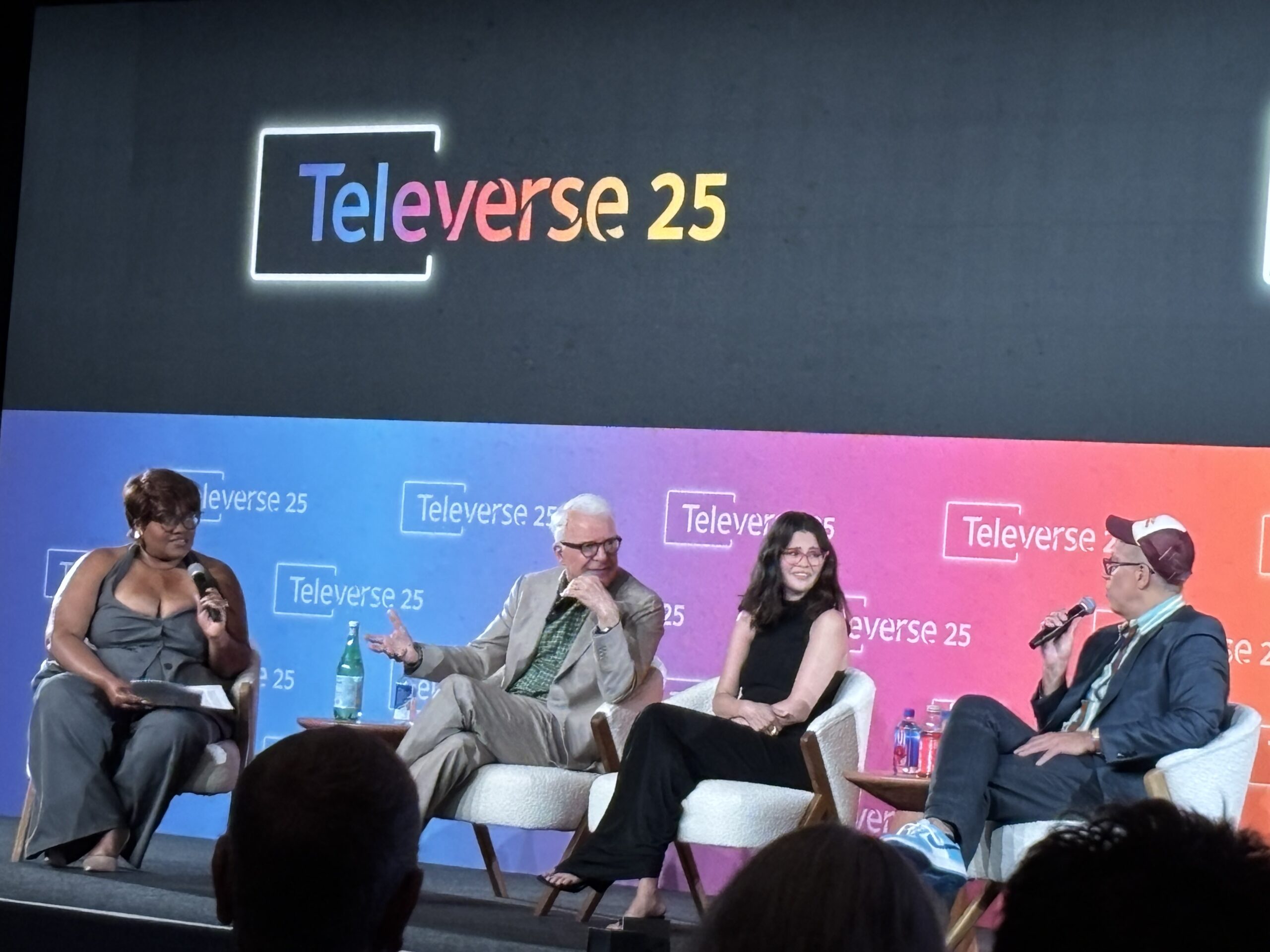Top execs from leading European production houses gathered at the Sarajevo Film Festival to discuss the current market for acquiring and adapting IP, touching on issues such as catering for local and global audiences, scouring for gems instead of searching for the next Marvel, and familiarity as a way in for audiences. Here are five takeaways from their conversation:
Listen to the market… With reservations
Billy Bowring, co-executive producer at the U.K.’s See-Saw Films (“Slow Horses”), cautioned creatives “not to be just reactive” to the market.
Popular on Variety
“We are constantly talking to broadcasters, going to festivals, trying to work out what the market wants, trends, to try and have an understanding of what to do next,” he said. “But I’ve spent a lot of my career working with writers who have a tiny idea, and often when you are trying to compare that tiny idea to what the market wants, you are at least two or three years away from getting that thing to market. What the market wants right now has very little relevance to the idea you are working on.”
Bowring called this obsession with chasing market trends “absurd,” stating that it is “important to have a good understanding of where the market is but also to ignore it completely.”
However, senior director of Banijay Entertainment Scripted, Denis Leroy, said investing in tried and tested genres, such as procedurals, which have long dominated French television, made sense. “As producers, we must look at what the audience wants, first and foremost,” he said. “There are certain constants with genre and other elements that we must keep in mind even if we divert from it from time to time.”
Going global
Leroy emphasized it is “important to be global and have a global reach in terms of distribution but also in terms of data, analysis and research, and have a wider view in terms of IPs and potential remakes, which is a growing business,” especially given that all major international streamers Banijay works with are looking at a global scenario. But a key point to the exec is that, despite this focus on a wider net, productions “will always remain local.”
Executive vice president of worldwide content at Globalgate Entertainment, Meg Thomson, echoes this notion, adding that “focusing on your local market is what is going to make your content perform internationally.” To the exec, formats from underseen territories offer a great opportunity in this sense, as you can be the one to “expose audiences to something new,” marrying this idea of a global pool to a local hook.
Leroy also pointed out how producers have to stay local if they want to reach out to major platforms directly, as streamers tend to be spooked by the possible difficulties — and high price tags — of large co-productions. “You can’t co-produce and pitch it to a platform. If you mention [more than one country] involved, they will give you an L.A. number and tell you to call them [instead].”

Courtesy of Rafa Sales Ross
It’s not about the “new Marvel”
Instead of looking for the next version of a big IP such as Marvel and DC Comics, Leroy believes creatives and executives should focus on formats that are not only relevant to their markets but also something that could be easily adapted into new territories.
“Nowadays, IP can come from any market,” said the exec. “Of course, we have DC Comics and Marvel, which are maybe in another galaxy, but we don’t need to chase those, if ever that was possible, to find IPs that are relevant to Europe. We shouldn’t be too narrow-minded when we mention IP. It’s an existing narrative that makes sense and can be brought into another format or market. In that way, we must keep in mind it’s a much larger perspective than just going to the big hits.”
Bowring mentioned “Slow Horses” as a good example, given that the Mick Herron books “were not bestsellers.” “But if you were a fan of spy novels, you were a fan of those books. It wasn’t ‘The Lord of the Rings,’ but the books were really good. So when you take those books as an idea to adapt to a broadcaster, there is a good chance your adaptation will be good because you have a good foundation. This is the most expensive of all art forms, so risk is important. It’s just people trying to manage their risk. Everything costs millions, so how can you give yourself some reassurance?”
The tried and tested opens doors to big talent
Thomson highlighted another key advantage of working with existing IP: not having the high risks of a brand new format can grant creatives the chance to work with high-profile talent they would otherwise not have access to. Citing the “Perfect Strangers” format, which has been adapted to almost 30 different territories to great results, the Globalgate Entertainment exec said, “it has given producers access to top writers and also top stars in each territory.”
“Because you have a great idea, it allows you to access [talent],” she added. “[From there] you’ll be creating more things together. You develop talent by using IP from elsewhere.”
Focus on the familiar. Genre is still the safest bet.
Bowring brought up Netflix’s “Squid Game” as a “good example” of a success built on something that is familiar to audiences. “[The show] seemingly came from nowhere. Who would have thought something like that would have been a global hit? But when it came out, there was a genre and a lineage of storytelling that ‘Squid Game’ fit perfectly into. It’s ‘Battle Royale,’ it’s ‘Oldboy.’”
“Slow Horses,” Bowring thinks, hits a similar note. “There is no historical reason why the British should have any territories over spy stories, but we happened to have had two authors over 60 years ago, Ian Fleming and John le Carré, who wrote great spy stories. When you send a spy story to America and the characters have British accents, they feel familiar.” And once you have that familiarity element, the exec said, it is much easier to have the “grounding to step into the unfamiliar” and usher audiences into the novelties of your story or format.
Leroy brought up Mike White’s hit HBO show “The White Lotus” as an example of that phenomenon. Even though it is not based on existing intellectual property, the mystery series drinks for the fountain of “satirical heroes like Agatha Christie’s” and “the classic mystery crime drama.” “If you stick to references people think they know, you can push the envelope a little bit,” added the exec. “If people feel they are entering a known narrative, they will follow more easily. And once they’re there, you can bring them to new areas that are totally original. Genre is as efficient as IP sometimes.”
Thomson added that “drama is still the hardest thing to get right,” so sticking with more popular genre offerings such as comedy and horror, “you can give yourself a chance.”





